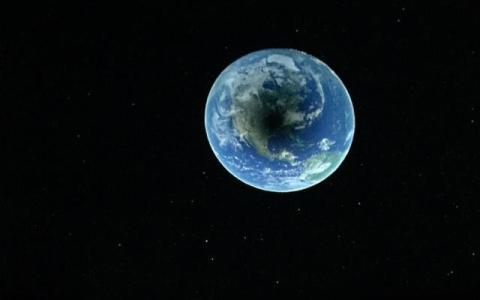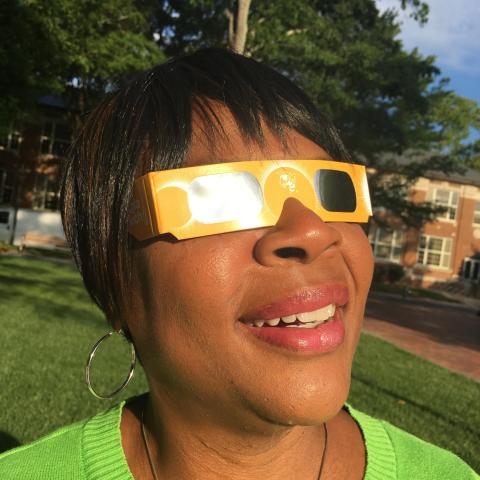The skies over Georgia Tech will be at 97 percent darkness during the Aug. 21, 2017, solar eclipse. Watfching the spectacle will require special eclipse-viewin glasses, but you'll also want to notice the changes in the environment around you as the skies get darker during this rare celestial event.
It is expected to be the most-watched celestial event of the year: A total solar eclipse on Aug. 21, 2017, that will be visible across the U.S. from Oregon to South Carolina.
Georgia Tech isn’t on the path of 100 percent totality, but above campus, the moon will block 97 percent of the sun’s disk at approximately 2:37 p.m. EDT. The eclipse should darken skies, drop air temperatures, and make birds think it’s bedtime.
The sunlight from a partial eclipse is bright enough to injure unprotected eyes, says James Sowell, senior academic professional in the School of Physics, and director of the Georgia Tech Observatory.
“Even a sliver of sunlight, that three percent, could damage your eyes if you persist in looking at it directly,” he says.
The temptation to report to social media or record the event with mobile devices will be strong. We urge you instead to take in the experience. Those who have watched total eclipses say they are spectacular for how they make you feel.
“It humbles you,” says David Baron, science journalist and author of “American Eclipse,” about the total solar eclipse of July 29, 1878. Baron has witnessed five of these phenomena. “They are awe-inspiring and humbling, and they make you realize we are just a tiny part of something enormous.”
Here are three simple rules to safely and fully experience the 2017 solar sensation in an age of mobile devices:
- Anytime you look up, wear special eclipse glasses.
Whether you’re observing the sun at 1 p.m., 2:37 p.m., or 4:01 p.m., use glasses with ultradark lenses specified for direct observation of the sun. Eclipse glasses will be distributed around campus beginning at noon on Aug. 21. - Keep the smartphone in your pocket.
It’s possible to take a photo of the eclipsing sun, but we don’t recommend it. You risk glimpsing the sun and injuring your eyes while lining up the shot. - It’s a rare event, so be in the moment.
It’s not just the breathtaking spectacle of the sun slowly blocked by the moon. It’s also what’s happening around you. With good weather conditions, the bright planet Venus may appear. Birds may stop chirping. Spaces between tree leaves can act as pinhole cameras; you may end up with a dappling of crescent, eclipsed suns at your feet.
Additional Images

